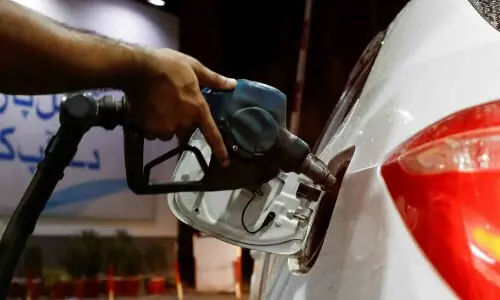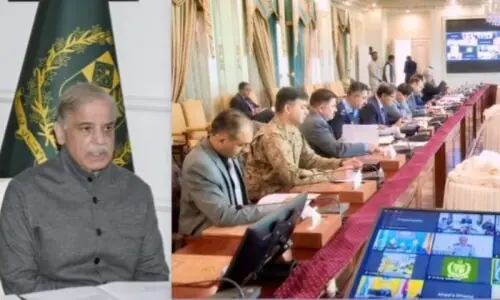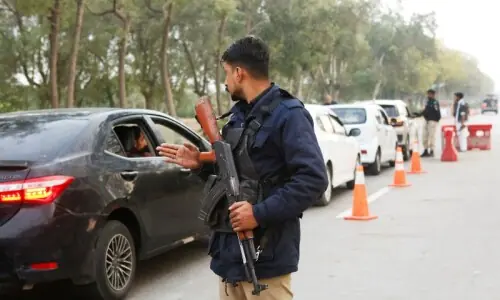YEAR of the Youth. That’s what Prime Minister Imran Khan has termed 2022. It is unclear what the branding will entail in terms of policy changes or resource allocation, beyond plans to promote sports and revamp sports infrastructure. This is a positive step, but obviously not enough. There can be no greater priority for Pakistan than addressing the needs of its burgeoning young population.
In our country, every year, if not every month and minute, should be youth focused. We have one of the largest youth populations in the world, with 68 per cent of the population under the age of 30, and around 27pc between the ages of 15 and 29, according to the Pakistan National Human Development Report. Almost 30pc of youngsters are illiterate, while of the four million youth who enter the workforce each year, only 39pc find jobs. A 2020 UNDP report estimates that half our country’s youth is languishing, and not in any form of education, employment or training.
These statistics are alarming, but they only tell a partial story. Scan the news stories in this paper, and the full extent of the youth crisis will begin to crystallise. Young people in this country are contending with enforced disappearances and extrajudicial killings; lack of basic services such as water and gas; and a paucity of credible information sources. They fear the havoc that climate change will wreak on their lives, with 74pc citing it as one of the biggest challenges for the country, according to a British Council report.
Those who identify as religious or ethnic minorities live in a constant state of terror, fearing nothing less than arbitrary killing; those who are women may be subject to forced conversions, rape or violence; those lucky enough to seek education are contending with severe learning loss due to school and university closures through the pandemic; those with internet access dread surveillance and online harassment; those with aspirations sit for medical entrance exams that result in litigation due to integrity concerns; those wanting to make a difference are shut out of student politics and branded dissidents or traitors. Those with dreams are wondering where to turn.
Those with dreams are wondering where to turn.
And, not surprisingly, all of them are vulnerable to indoctrination by religious or violent extremist groups. A recent report on youth in Sindh released by the Pak Institute for Peace Studies warns of growing extremism among disaffected youth in the province, and is only the latest reminder that young people who are not meaningfully engaged will instead be destructively deployed.
And yet, there is no comprehensive, all-encompassing plan for how to educate, upskill, employ and engage young Pakistanis. The government has introduced various initiatives such as the National Vocational and Technical Training Commission’s ‘National Skills for All’ strategy, the Kamyab Jawan Programme, which offers jobs portals and business loans, and Punjab’s Parwaaz programme, which partners with the private sector to upskill youth. The much-debated National Security Policy recognises that a “dedicated focus on youth is essential for our future progress”, but focuses more on population and internal migration control rather than recognising that the state’s failure to empower the youth is arguably our greatest future national security threat.
Indeed, any discussion about youth in Pakistan quickly devolves into labour market analysis, with skills and job creation touted as the solutions to what is a much more complex programme. Study after study has highlighted the mismatch between the supply and demand for workers, the result of our economy’s transition from agriculture to services, without remaining competitive and technologically up to date in the manufacturing space. But even if we upskilled millions of job-seeking young people, Pakistan’s demographic (and related economic and security) challenges would remain.
This is because our youth-oriented policies cannot see beyond productivity to actual potential. It is a failure of our political system that young Pakistanis are not seen as future voters or proactive rights-bearing citizens, just a mere mass to be managed. This message is clear in the state’s crackdown on ethnonationalist movements organising against marginalisation and oppression. And it was clear in the launch of the Single National Curriculum, which privileges ideology over substance, and emphasises narrow nationalism and dogmatism over education. While our prime minister speaks of youth skills, he delivers a curriculum that discourages analysis or critique, the key skills that the twenty-first century economy demands.
In this Year of the Youth, the government should introspect on its policies and consider how its actions today will impact those millions of Pakistanis who are still under 15 years old, and ask for little more than sustenance, safety and the opportunity to realise their potential.
The writer is a political and integrity risk analyst.
Twitter @humayusuf
Published in Dawn, February 7th, 2022





























